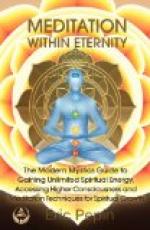Compare the following, which is one of the five daily prayers of the faithful Muslim, with the Lord’s prayer as used in Christian theology.
“In the name of God, the compassionate—the
merciful.
Praise be to God, the Lord of the worlds,
The compassionate, the merciful.
The king of the day of judgment.
Thee do we worship and of Thee do we beg
assistance.
Guide us in the right way,
The way of those to whom Thou hast been
gracious,
Not of those with whom Thou art wroth,
nor of the erring.”
Mohammed never tired of telling his disciples and followers that God was “The Very-Forgiving.” Among the many and sometimes strangely varied attributes of God (The Absolute), we find this characteristic most strongly and persistently dwelt upon—the ever ready forgiveness and mercifulness of God.
Every soorah of the Kur-an begins with the words: “In the name of God, the compassionate, the merciful,” but, even as Jesus laid persistent emphasis upon the love of God, and yet up to very recent times, Christianity taught the fear and wrath of God, losing sight of the one great and important fact that God is love, and that love is God, so the Muslims overlooked the real message, and the greatness and the power and the fearfulness of God, is the incentive of the followers of the Illumined Mohammed.
The following extracts from the Kur-an are almost identical with many passages in the Holy Scriptures of the Christian, and are comparable with the sayings of the Lord Buddha.
“God. There is no God but He, the ever-living, the ever-subsisting. Slumber seizeth Him not nor sleep. To Him belongeth whatsoever is in the heavens and whatsoever is in the earth. Who is he that shall intercede with Him, save by His permission?”
The Muslim is a fatalist, but this may be due less to the teachings of the prophet than to the peculiar quality of the Arab nature, which makes him stake everything, even his own liberty upon the cast of a die.
The leading doctrine of the all-powerfulness of God seems to warrant the belief in fatalism—belief which offers a stumbling block to all theologians, all philosophers, all thinkers. If God is omnipotent, omnipresent, omniscient, how and where and in what manner can be explained the necessity of individual effort?
This problem is not at all clear to the western mind, and it is equally obscure to that of the East.
It is said of Mohammed that when asked concerning the doctrine of “fatalism” he would show more anger than at any other question that could be put to him. He found it impossible to explain that while all knowledge was God’s, yet the individual was responsible for his own salvation, by virtue of his good deeds and words. Nevertheless, it is not unlikely that Mohammed possessed the key to this seeming riddle; but how could it be possible to speak in a language which was totally incomprehensible to them of this knowledge—the language of cosmic consciousness?




